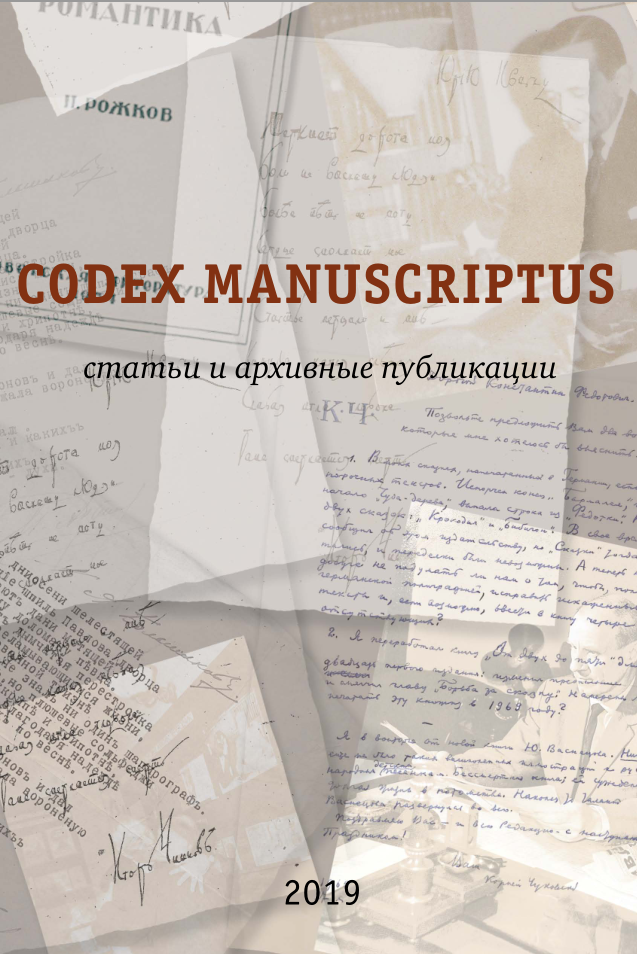Abstract:
The transcript of Andrei Bely’s report “Culture of local history essay” at the local history section of the Organizing Committee of the Union of Soviet Writers in 1932 is published for the first time and is the first edition of an article with the same title published in 1933. Together with the report, a transcript of its discussion is published, which allowed the speaker to develop some of the provisions of his speech. The range of problems raised by Bely goes back to the history of the local history movement of the 1920s. The main provisions of the report are related to a specific intuitive method of cognition, which was used in local history studies and had common features with the artistic method of a realist writer. Developing Dilthey’s philosophy of subjective cognition, Bely confronted the “scheme of conclusions”, the “summary of rules” as a feature of a degenerate civilization, with the singular and unique as a property of a developed culture. By introducing not an “industrial” but a “local history” essay into the title of his report, Bely reminded the audience of a recent discussion about the culture of a Marxist essay that unfolded on the pages of the RAPP magazine “Na literaturnom postu / On a Literary Post”. Voiced at a time of ideological and political respite, Bely’s report was the last attempt to institutionally assert the right to the existence of the methodology of local lore and a premonition of new trends in Soviet literary criticism of the first half of the 1930s.






